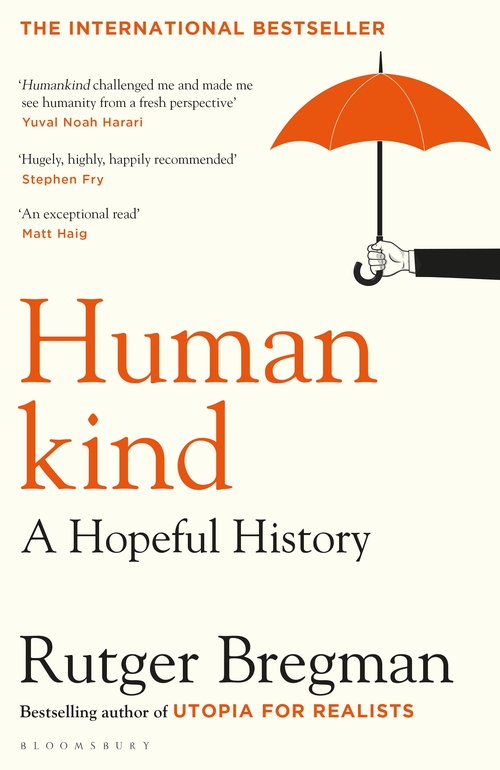HUMANKIND: A HOPEFUL HISTORY
Rutger Bregman
Bloomsbury
REVIEWED BY ELSPETH MCLEAN
Not all will agree with European historian Rutger Bregman’s assertion that it is radical to believe ‘‘most people, deep down, are pretty decent’’.
He says the persistent myth is that we are selfish, aggressive and quick to panic. Hence, we might be surprised that when a crisis hits many of us become our best selves.
Many New Zealanders are unlikely to find that surprising, but regardless of that, Bregman’s latest book is a fascinating read.

Accurately describing it as a hopeful history, Bregman romps through man’s history, taking every opportunity to debunk instances of what he sees as the prevailing view of man’s awfulness.
He includes the wonderful story of the true ‘‘Lord of the Flies’’, that of six Tongan teenage boys marooned on the island of ‘Ata in the 1960s who co-operated with each other for more than a year to survive in the tough environment. When they quarrelled, squabblers were sent to the opposite ends of the island to cool down, then brought back together to apologise.
He discusses our reluctance to hurt each other face-to-face, even in wars, pointing out weapons have developed so we can kill many people from a distance. Scholars who looked at the 1863 Battle of Gettysburg at the height of the American civil war found that of the 27,574 muskets recovered from the battlefield, 90% were still loaded. The historians worked out that spending time loading a gun was the perfect excuse not to shoot it. What is more, 12,000 muskets were double loaded. One rifle had 23 balls in the barrel ‘‘which is just absurd’’.
Most soldiers were not trying to kill the enemy.
Bregman concedes good people can turn bad, but it is not a simple matter. In the case of the Nazis, the German people’s minds were poisoned by years of deception, indoctrination, brainwashing and manipulation.
Evil, he argues, does not live just below the surface; ‘‘it takes immense effort to draw it out. And this is critical: evil has to be disguised as doing good’’.
In a weird way, Bregman says, believing in our own sinful nature is comforting, providing a kind of absolution. ‘‘Because if most people are bad, then engagement and resistance aren’t worth the effort.’’
Those favouring the lock-em-up-and-throw-away-the-key approach to prisons may be surprised at the low recidivism rate among those incarcerated in Norway’s liberal and humane prison system. It is no surprise Bregman is a fan.
In a section on how power corrupts, Bregman argues that people unable to feel shame because they are drugged on power or have sociopathic traits would be cast out in nomadic tribes and left to die alone.
But in our modern organisations and political arrangements such people can thrive. What is worse, their audacious behaviour ‘‘pays dividends in our modern mediacracies, because the news spotlights the abnormal and the absurd’’.
In the epilogue Bregman gives 10 rules to live by, the most important of which he sees as being realistic. Not the sort of realism which is equated with pessimism but a view of the world which says people are deeply inclined to be good to each other.
It may not be a new realism, as he claims, but nobody could argue against its hopefulness which many may find welcome and refreshing in uncertain times.
Elspeth McLean is an ODT columnist and former health reporter











